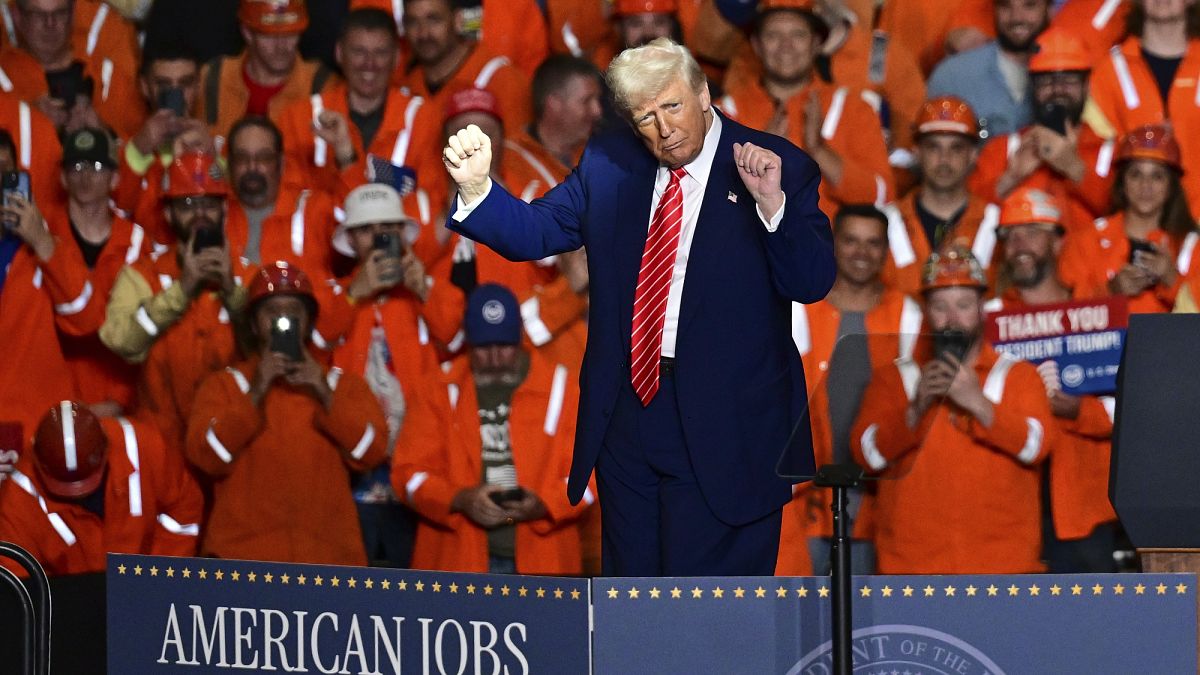

The global business landscape is currently experiencing several significant developments, providing insight into the evolving dynamics of international trade and industry. In recent news, key events have unfolded that illustrate trends in corporate takeovers, plans for industrial expansion, and geopolitical implications on business operations.
In the United States, the federal government has gained a new dimension of influence through a notable corporate transaction involving US Steel. As part of Nippon Steel’s takeover, President Trump has been accorded the power to exercise a veto on specific corporate decisions and appoint an independent director. This addition of presidential oversight in corporate affairs establishes a precedent, potentially influencing how future administrations could leverage similar powers. The arrangement is emblematic of growing interest in safeguarding national industries while navigating the intricacies of international business relations. Amid the backdrop of increasing global industrial interdependence, the agreement reflects strategic maneuvering to balance economic interests with national security considerations.
Across the Atlantic, Italy’s financial scene is witnessing transformative changes. The European Central Bank has given its consent for Monte dei Paschi di Siena to proceed with a takeover bid for Mediobanca. Despite Mediobanca’s reservations about the bid’s potential impact on its business model, the move signifies a shift towards consolidation within the Italian banking sector. The union, initiated earlier this year, underscores a broader trend within Europe’s financial services sector, where mergers and acquisitions are increasingly viewed as viable strategies to bolster financial stability and competitiveness in a rapidly evolving market. Analysts observe that such developments could lead to enhanced efficiencies, although they warrant careful consideration of potential impacts on diversity in financial services offerings.
Further north, the United Kingdom emerges as a focal point for industrial expansion plans from overseas. Chinese automaker Chery Auto is contemplating the establishment of its second European manufacturing facility in the UK. As the company faces heightened tariffs imposed by the UK and the European Union, this strategic move aligns with its ‘localisation’ strategy—a robust approach to mitigate the effects of tariff barriers by investing in local production. Since introducing its brands Omoda and Jaecoo to the UK market last September, Chery Auto has noticed growing consumer interest, reflecting the broader trend of Chinese vehicles gaining traction in Western markets. The potential factory would not only expand Chery’s manufacturing capabilities but also contribute positively to the UK’s industrial landscape by creating jobs and stimulating technological advancements in the automotive sector.
Collectively, these events paint a picture of a world where strategic corporate decisions are closely interlinked with political and economic considerations. The ongoing shifts in industry power dynamics and market expansions highlight the importance of adaptability and strategic foresight in navigating the complexities of modern business. As businesses and governments continue to collaborate and compete on this multifaceted stage, these developments offer a calm yet insightful window into the structural transformations shaping the future of global trade and industry. With each step, there lies an opportunity to thoughtfully address challenges, harness potential, and cultivate a more connected and resilient global economy.
Source: {link}
